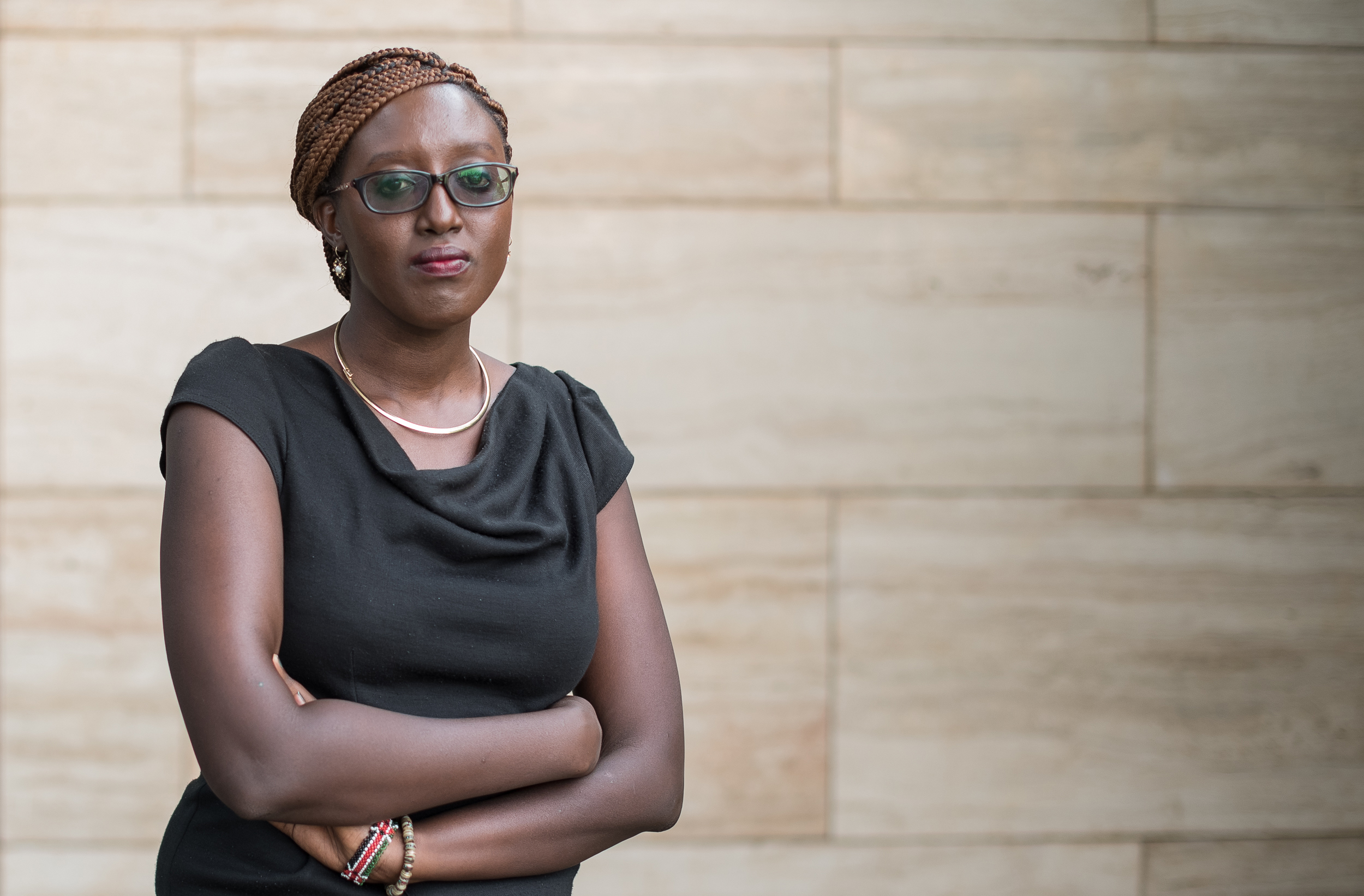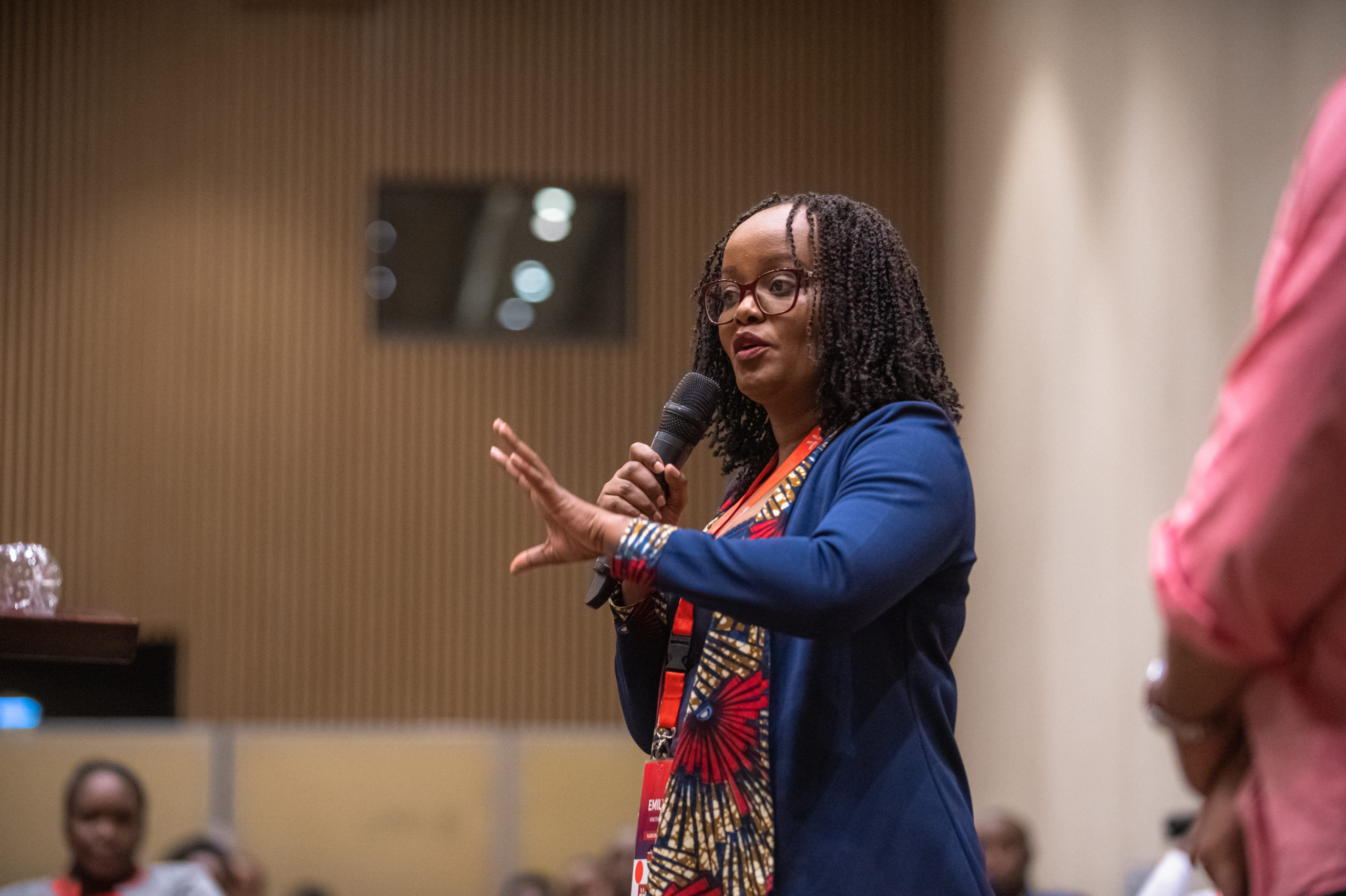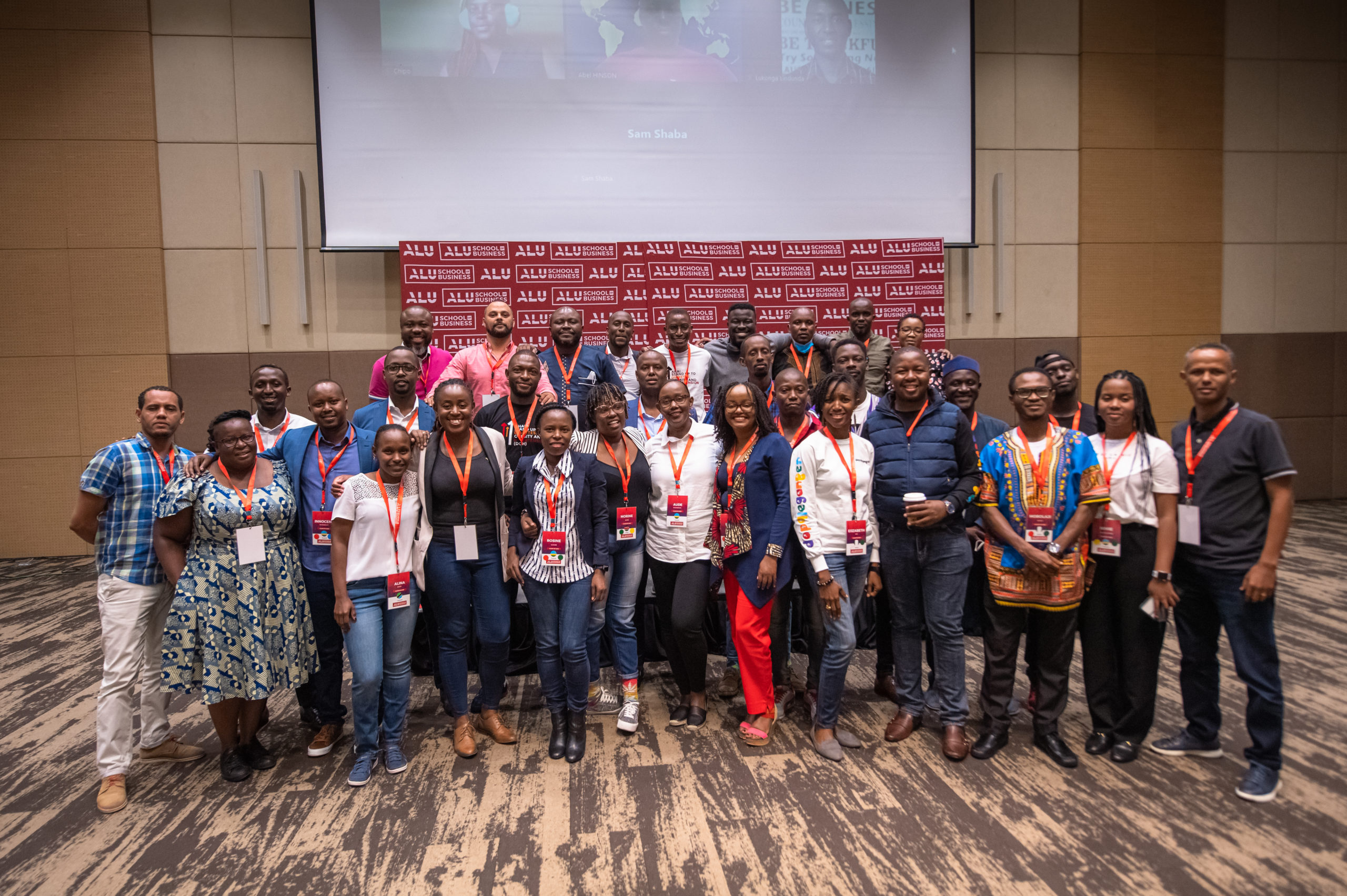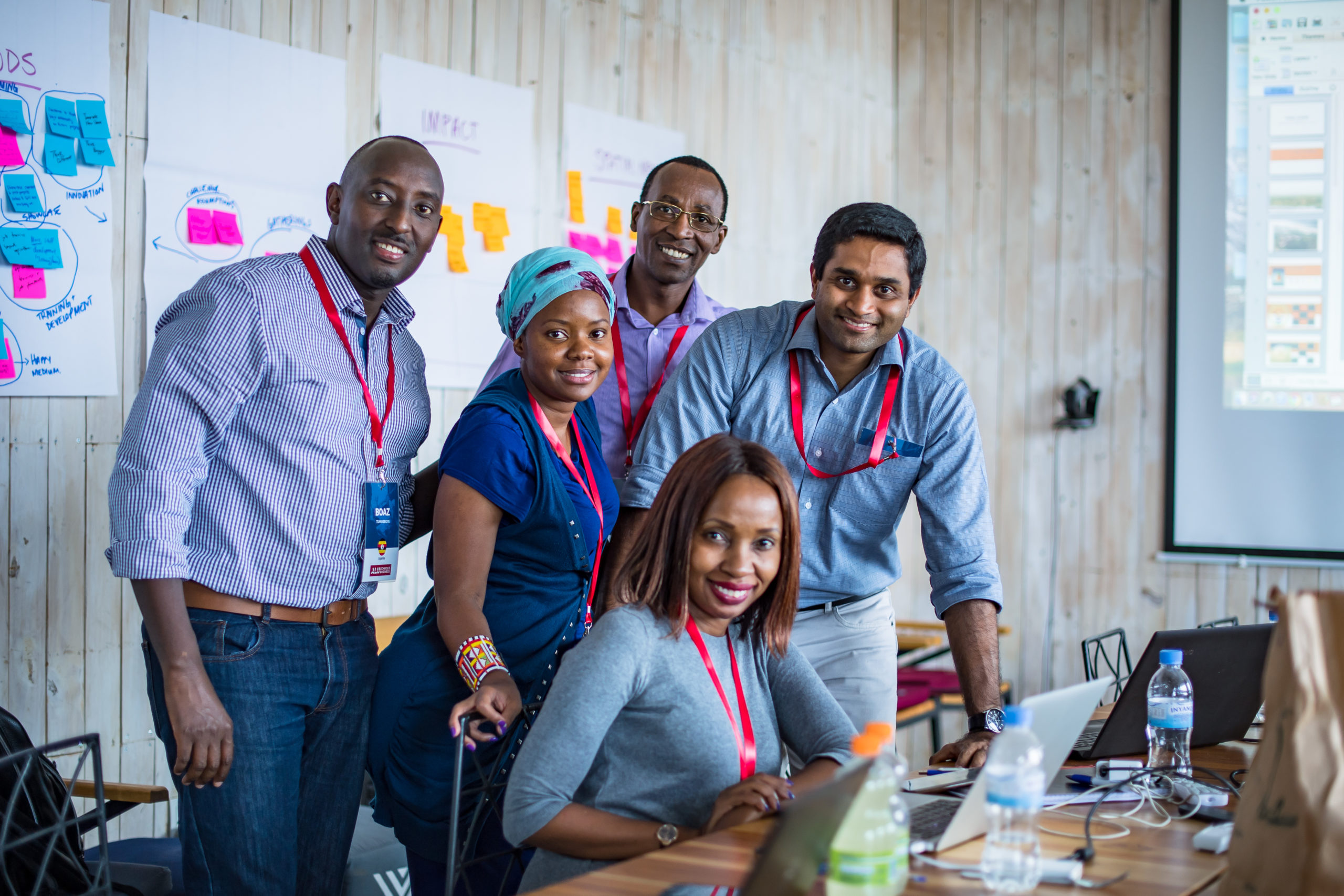CATHERINE CHUMO ’20 IS AN INFORMATION OFFICER AT Africa Network for Animal Welfare (ANAW) in Kenya and is currently enrolled in the EMBA for Conservation Leaders! We had the privilege to chat with her about her experience and work in the conservation field.
Catherine’s interest in nature and animals started at a young age. After visiting the Nairobi National Park as a child with her family, she knew she wanted to work in a space that would ensure the safety of wild animals. Today, Catherine is an Information Officer in the Communications Department of an international conservation organisation.
At ANAW, Catherine gets to experience the best of both worlds as she works both in the field and in the office!
While in the office, her responsibilities mainly revolve around planning and information management. As an Information Officer, she is tasked with ensuring that information and communication channels run smoothly and efficiently.
Similarly, her role in the field revolves around organising conservation initiatives in different parts of Kenya. This requires input from different members that make up the community, volunteers, government, partners, conservation stakeholders, donors, graduate students, and schools.
Catherine’s weekly schedule…
A typical weekday starts as early as 4 AM for Catherine. She starts her day off with a work out session after which she gets ready for work.
Her first task in the office, after a cup of coffee, is reviewing EMBA work. This is to make sure she is set for the week and is up to date with assignment deadlines.
At around 8:30 AM Catherine has a team check-in where they lay out the agenda for the upcoming week. A huge bulk of the rest of the day is meeting with stakeholders and partners to work on different projects and collaboration opportunities. She often closes off her day by sending out communications and responding to emails. Her evenings are reserved for school work.
While in the field, Catherine starts her day with one of her favorite things; work out sessions in the wild. The team then has breakfast at 8 AM. After a briefing, the team heads out to different sites where they start working on different tasks such as de-snaring, animal rescues, human-animal coexistence activities, companion animal vaccination campaigns, and working with wildlife guardians for patrols.
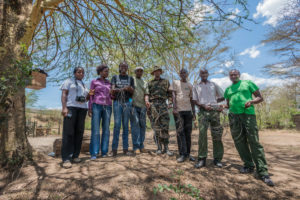
ANAW team members, including Helen Jerotich, Eunice Robai, and Kate Chumo, rangers and Soysambu Conservancy staff during a full day of snare-removal at the Soysambu Conservancy northwest of Nairobi. Kenya, 2016.
ANAW projects include community mobilization that is focused on women within different communities that they operate in. These initiatives are designed to inform women of the dangers of poaching and to provide them with alternative sources of income such as basketry. The organization also works with young men to turn lethal snare traps into snare art.
Pursuing an ALUSB EMBA
Although her work in the conservation field was fulfilling, Catherine was looking for a bigger platform that would allow her to work with others and take up the pressing issues in wildlife conservation. This led her to the EMBA for Conservation Leaders! Besides these professional needs, Catherine was intrigued by the vision, innovation, and network that ALUSB offers and this made her decision to join the School of Business a no-brainer.
On handling roadblocks: Through Leadership Lab and other courses in the EMBA programme, Catherine has learned to handle roadblocks with a healthy dose of emotional intelligence and calmness. “Leadership Lab really comes in handy when handling roadblocks especially those that require conflict resolution.”
Advice on working with different communities: While working with different communities, Catherine notes the importance of recognising and acknowledging the different dynamics within a community. She puts emphasis on the need to understand the community’s needs and priorities in order to move forward. She states that this is crucial especially in dealing with human-wildlife conflict, “You have to be a people person when working with a community,” she says.
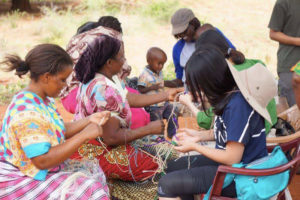
The experience as a woman in a male-dominated field
Catherine acknowledges that working in a male-dominated field comes with some challenges in the field and in the boardroom. How does she deal with these challenges? A positive mindset and an assertive attitude! She also chats with some of her classmates, especially the women, as a way to keep her motivated and inspired. Catherine emphasizes that while being a woman at work comes with its challenges, being the only female student in the conservation EMBA programme has been a great experience for her because of the support she has received from fellow classmates!
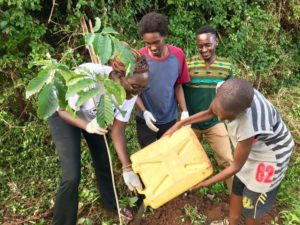
Her highlight at ALUSB
“My growth as a conservation leader has been heavily influenced by my classmates’ support and inspiration.” She also points out that the intensive held in Mauritius was a significant moment in her journey as a conservation leader. She was able to learn more about structural challenges experienced in conserving marine species. She gained tools from the marine conservation toolkit which she seeks to incorporate in her work.
“My growth as a conservation leader has been heavily influenced by my classmates’ support and inspiration.”
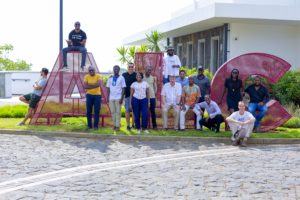
Advice to women seeking careers in environmental conservation
“Volunteer and take part in conservation programmes while in school. This will allow you to learn and give you skills which can give you a head start in your career. At the same time, connect with other women in the field as this will become a strong support system to help you get through challenges specific to women. Finally, always remember that everyone has so much to bring into the world of conservation therefore, you should be assertive and trust your instincts.”
